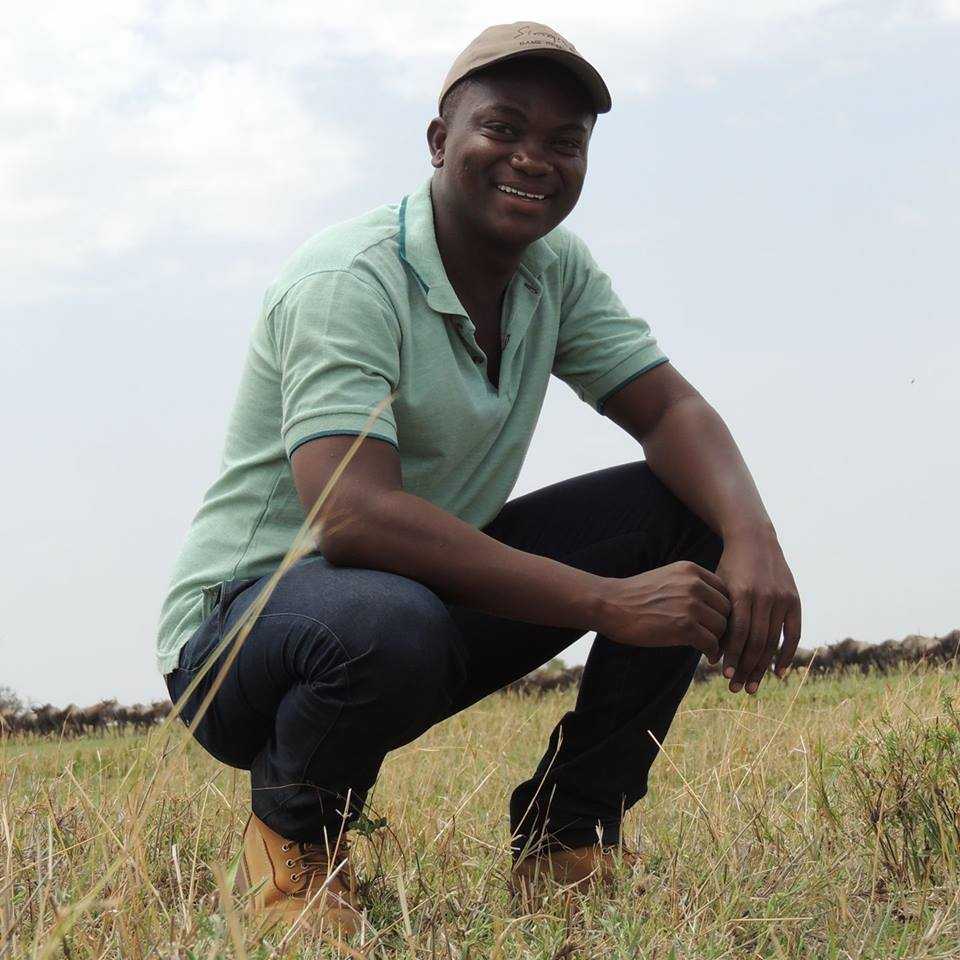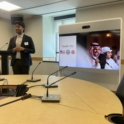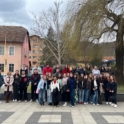Abdulaziz reflects on the highlights from serving as a mentor for CEW.
STORIES
Working with Wildlife in Tanzania

Would you know how to de-snare a giraffe if you came across one in need? How far would you go to advocate for wildlife and educate local populations on the importance of protecting animals such as black rhinos, baboons, and Burchell’s zebras? One Youth Exchange and Study (YES) alumni member answers these questions not with words, but rather through his work and actions.
From giving educational talks to actively working in the field, Bakari Mtili (YES alumnus 2011-2012, Tanzania, hosted by AFS in Kingston, NY) has chosen to dedicate his entire being to wildlife conservation.
Bakari said his interest in conservation is a family affair, something his relatives sparked in him when he was younger.
“Conservation has been a part of me for a very long time now,” Bakari said. “I don’t know how I got myself into it, but I believe it all started with my family and was passed on to me.”
Watching wildlife documentaries and following several wildlife issues also peaked Bakari’s interest in conservation. He decided to put everything else aside and make conservation his focus after seeing how little wildlife is advocated for.
Bakari also attributes the basis and foundation of his work to his experience as a member of the YES program.
“The exposure [the YES program] gave me makes me view wildlife conservation from multiple angles, and brings great impact and success to whatever I do,” Bakari said.

Since beginning his journey in this field, Bakari has shown people the many different ways they can contribute to wildlife protection, even on a small scale. He has done several different projects, including creating a trash-free community, giving herpetology (the study of amphibians and reptiles) lectures, and most recently helping to free a giraffe stuck in a poacher’s snare.
Poaching in Tanzania has been a large issue over the last decade, with large animals such as elephants and giraffes being main targets to poachers.
Bakari and other wildlife conservationists have helped to decrease the amount of poaching occurring across the nation through their efforts. In 2016, poaching had gone down by 55 percent according to a press release from the Daily News National Newspaper. This is the lowest it has been in the last nine years.
As he continues to pursue a bachelor’s degree in wildlife management, Bakari educates people on snakes and reptiles not only as part of his career, but also to raise awareness about such animals in the communities he works with.
The relationship between people in Tanzania and native reptiles and amphibians is something Bakari hopes to strengthen through his lectures. In addition to lectures, Bakari has set a few long term goals for himself as an advocate of herpetological education. He hopes to someday open a herpetological center for communities who could benefit from it.

Bakari’s proposal for the center focuses on four main areas the communities need: education, research, recreation, and assistance in issues. The center also creates the opportunity of employment for those in need.
The idea for a herpetological center stemmed from Bakari’s realization that many communities have a “kill before getting killed” mindset when it comes to reptiles. Bakari wants to educate the people on how to interact with the animals so both parties walk away free of harm.
“I believe the education we acquire isn’t ours [to keep],” but it is ours to transform and make useful in society,” Bakari said. “Educating the community on [herpetology] issues significantly contributes to raising awareness, and serves as part of my community service.”
Bakari strives to someday host a wildlife program on National Geographic’s Wild, a goal big enough to make anyone dedicate their whole heart and endless hours to their work.
“This is my life now,” Bakari said.





